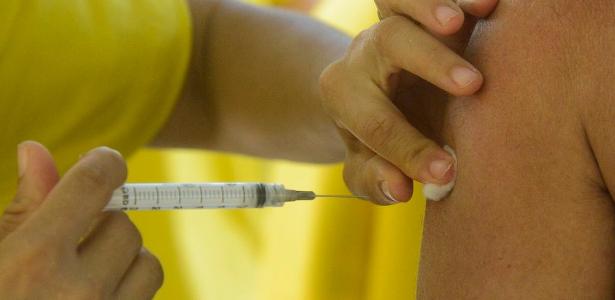Since its launch on April 4, the national influenza vaccination campaign has fallen short of the expected immunization goal of one of its Phase 1 target audiences: the elderly over the age of 60.
According to data from the Ministry of Health, just over 30% of the elderly were vaccinated against influenza across Brazil in the first month of the campaign. This first stage also included health professionals.
“It is far from desirable,” says Flávia Bravo, Director of SBIm (Brazilian Society for Immunization). “The elderly are the main group at risk for influenza complications.”
One of the reasons for the low coverage is related to people’s misperception: “They believe that influenza is a mild or weak disease, and that the vaccine Against it is not important, and that the virus is more dangerous. There are even those who believe that the influenza virus disappeared after the emergence of the Corona virus.”
According to Bravo, it is essential that there is good dissemination and communication that simply informs about the importance and availability of vaccines and the risks of infection. “The risks that lower vaccination coverage can bring are numerous, including the emergence of outbreaks and epidemics, the increase in the number of cases of severe acute respiratory syndrome and the burden on the health system. These are consequences that come over time. Because of that. It is a completely preventable disease. by means of the vaccine.
The influenza outbreak at the end of 2021 is cited as one of the consequences of low adherence, as it provided a favorable environment for the out-of-season H3N2 influenza pandemic, which began in Rio de Janeiro. Janeiro and quickly spread to other states.
Who vaccinated in 2021 should be vaccinated in 2022?
For those who had the immunization during the flu outbreak in November/December last year, the question remains whether they need to be vaccinated this year. The answer is yes, because the 2021 and 2022 flu vaccines are different.
There has been a change in one influenza A strain and one influenza B strain in which Darwin’s lineage (subtype A) has been included, says Ilian Matos dos Santos, a pediatric infectious disease specialist and member of the Sociedade de Pediatria do Estado do Rio de Janeiro infectious disease committee. ) in this year’s composition.
Chavez, who is also a consultant with the SBI (the Brazilian Society for Infectious Diseases), says we should be vaccinated every year precisely because the influenza virus undergoes frequent mutations. Vaccines should be updated according to the circulation of influenza virus variants.
Bravo explains that vaccines are designed to protect us during flu season as viruses spread rather than all year round. “Flu vaccines protect us. It’s not for everyone, it’s a statistical fact, but after six months of application we can no longer count on the same protection we had when we were vaccinated for the first 14 days. Throughout the year, which is one more reason to vaccinate annually,” as he says.
Vaccination is the best protection against serious diseases
Immunization against influenza is still the best preventative measure, as it stimulates our immune system to produce defense cells against the virus, according to pediatric infectious disease specialist Santos: “If we become infected before we develop flu-like symptoms, our defense will produce antibodies that protect us from getting sick. , or from developing serious complications and conditions in the case of our disease.”
Those who have not been vaccinated against influenza, especially people who are part of the risk and priority group, may need hospital care: “Influenza can be a serious illness and develop with complications such as bacterial pneumonia. Depending on the situation, mechanical ventilation can be necessary and the disease can lead to death,” says the UFPA professor.
Other flu prevention measures include avoiding crowded, unventilated indoor spaces, sanitizing hands with soap and/or alcohol gel, and avoiding scratching the nose and mouth if hands are not clean. Wearing masks can also help prevent transmission of the virus.
The influenza vaccine available in health centers is trivalent and protects against H1N1, H3N2 and type B strains. The vaccine offered in the special network is quadrivalent and the difference is that it contains one strain more than another strain of influenza virus type B in composition, increasing the potential for protection. It is important to note that those who take the trivalent vaccine will also be protected.
The director of the SBIm explains that these differences are part of the normal evolution of vaccines, according to the observation of the epidemiological evolution of influenza viruses circulating around the world. According to her, the quadrivalent vaccine will most likely be available at SUS in upcoming public campaigns.
This year’s national vaccination campaign has entered its second phase in the third phase. The new phase targets children aged 6 months to less than 5 years and individuals from other priority groups, such as pregnant and postpartum women, indigenous peoples, public and individual educators. Special Education Network, among others. The campaign ends on June 3.



